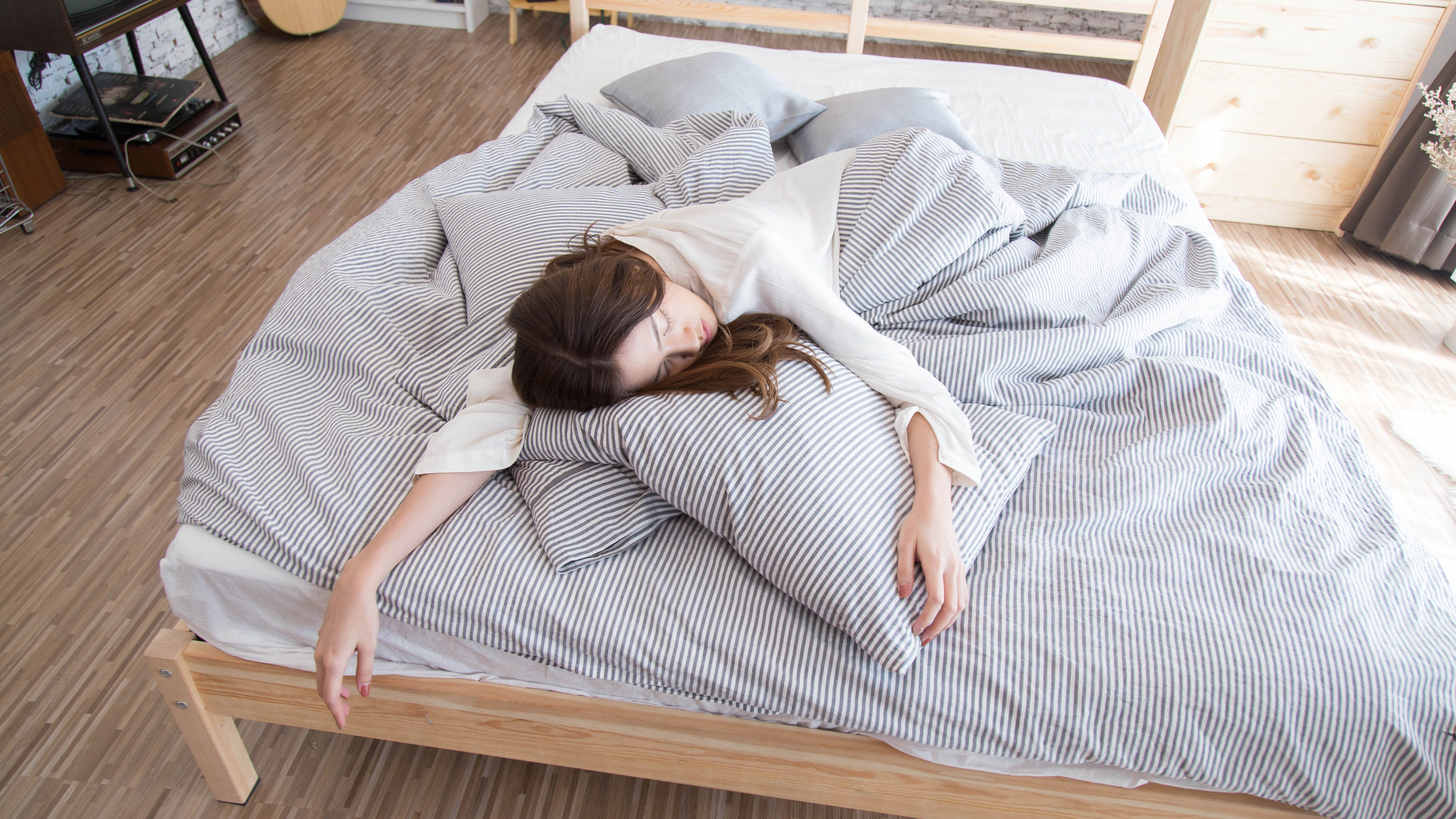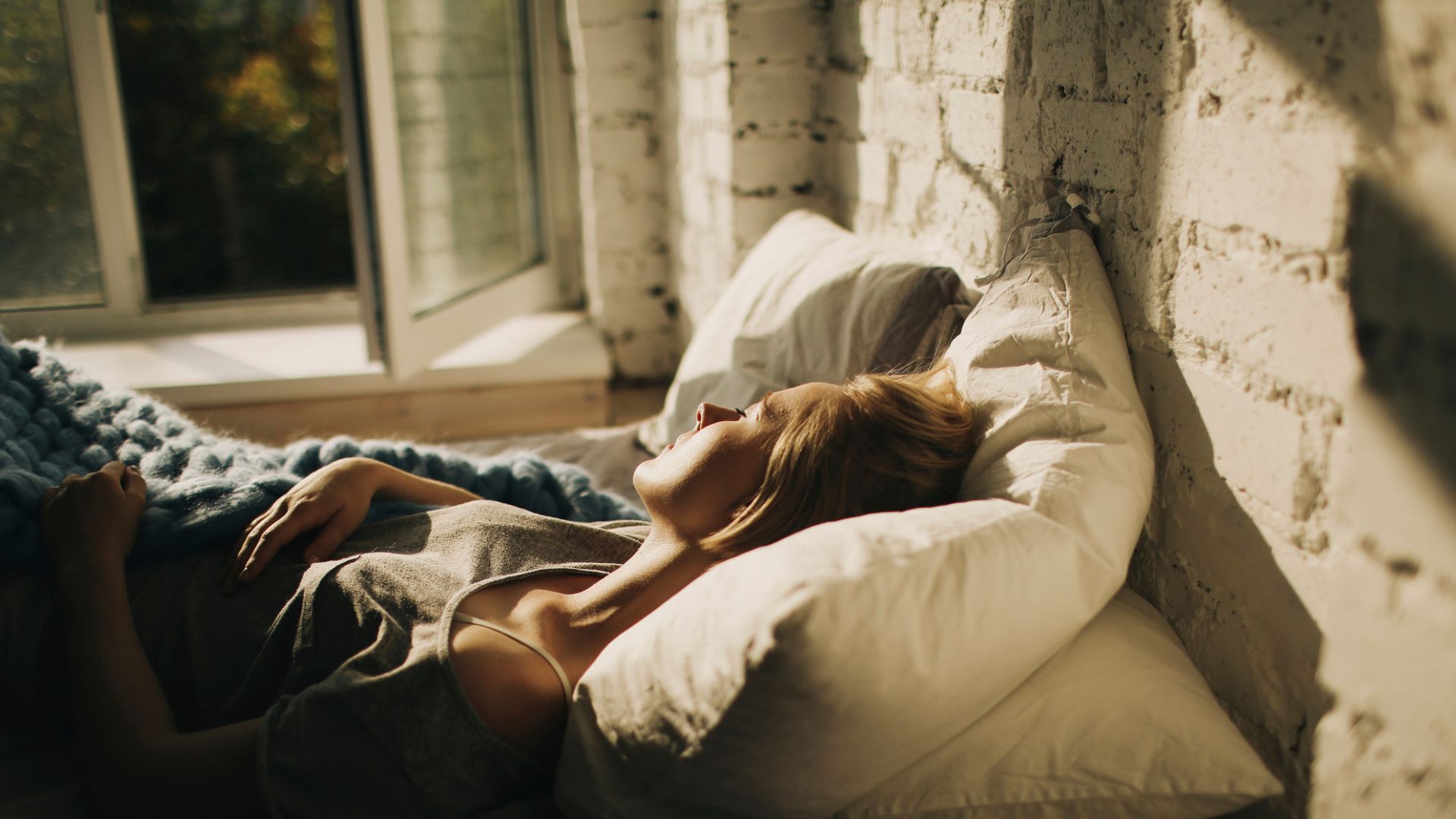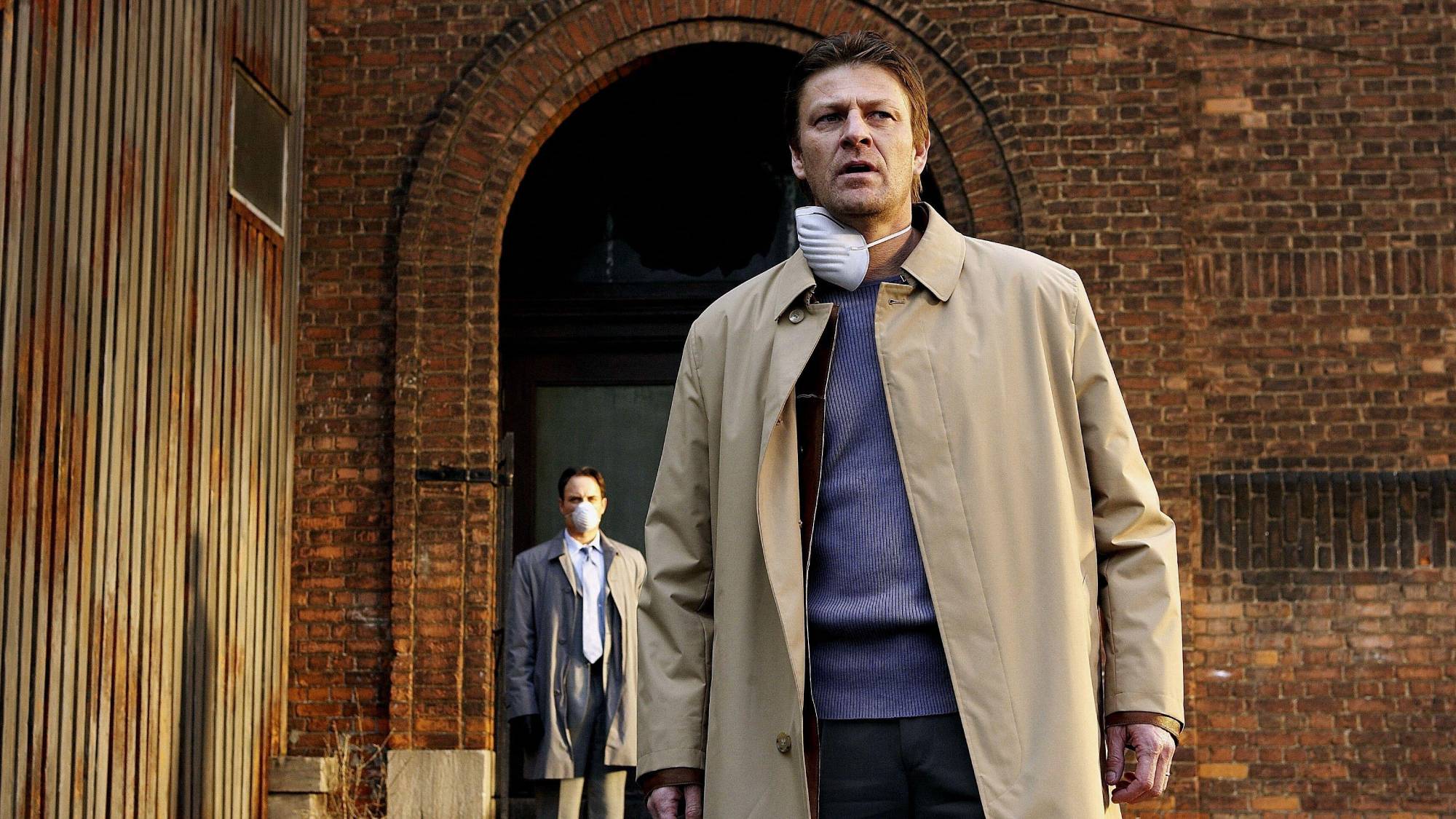Is it possible to fall asleep in 10 seconds? Experts say yes — but there's a catch
Can you learn how to fall asleep in 10 seconds and should you even try? Three experts respond

Each week there seems to be a new sleep hack promising to show you how to fall asleep in 10 seconds flat. These methods always gain attention because so many of us are often searching for a quick sleep fix, but is it even possible to fall asleep that fast at night? And what does it mean if you can fall asleep in 10 seconds?
While you can boost your chances of falling asleep fast by creating an optimal bedroom environment, including keeping it cool, quiet and dark, and investing in the best mattress for your body, this doesn't guarantee you'll fall asleep fast. However, sleep techniques such as the Military Sleep Method can help you fall asleep faster at night if you practise them regularly.
But even so, 10 seconds seems like a stretch. We asked three sleep experts — Dr Nicola Cann of The Family Sleep Consultant, Dr Theresa Schnorbach for Emma Sleep, and Dr Neil Stanley of The Sleep Consultancy — to find out whether you can learn how to fall asleep in 10 seconds or whether it's a sign of something else.
How long does it normally take to fall asleep?
If you don't fall asleep within the first few minutes of your head hitting the pillow, the good news is that this is normal. "Anything under five minutes would ring alarm bells for me," says Dr Cann. "The transition between being awake and being asleep is a gradual process. It's not like switching off a light, even though it can feel that way."

So how long should it take you to fall asleep? Dr Neil Stanley says a healthy adult will fall asleep within seven to 12 minutes, while Dr Schnorbach says it's normal for sleep latency (the time it takes to fall asleep) to take even longer: "Sleep latency can vary from person to person, but generally speaking a sleep onset latency of 15 to 30 minutes indicates good sleep quality."
Can you really learn how to fall asleep in 10 seconds?
Falling asleep in 10 seconds is likely a sign of sleep deprivation, which can have serious health consequences
Dr Theresa Schnorbach
"There is no method, short of drinking till you pass out, that will put you to sleep in 10 seconds," says Dr Stanley. "It is neither necessary or desirable to need to fall asleep faster than that as to do so goes against the natural processes required by the brain and body."
While Dr Cann says that it is possible to fall asleep within 10 seconds, she says it usually has nothing to do with a carefully followed sleep technique. "It is possible to fall asleep within 10 seconds but it's certainly not something to aim for," says the sleep psychologist. "In fact, if you're falling asleep within 10 seconds then you're probably significantly sleep deprived."
Get instant access to breaking news, the hottest reviews, great deals and helpful tips.
Dr Schnorbach agrees: "Falling asleep in 10 seconds is likely a sign of sleep deprivation, which can have very serious health consequences in the long run, so if you're concerned by chronic sleep issues, you should always consult a medical professional."
Does the Military Sleep Method help you fall asleep in 10 seconds?
The Military Sleep Method was originally created to help US soldiers fall asleep quickly in combat conditions. Many people use it to fall asleep fast, but usually within two or a few minutes.
Here's how The Military Sleep Method works:
1. Relax your face muscles, drop your shoulders, and keep your arms loose by your sides, with relaxed fingers and hands.
2. Exhale to relax your chest
3. Relax muscles in legs and feet
4. Imagine a relaxing, warm sensation washing over your body
5. Inhale and exhale while clearing your mind of all thoughts
6. Imagine one of the following scenarios: You’re lying on your back in a canoe of a tranquil lake below a clear blue sky OR you're lying in a black velvet hammock in a pitch black room
7. Repeat the words “don’t think” in your head over and over for 10 seconds if you feel other thoughts creeping back into your mind.

"Many 'sleep hacks' are really just a repackaging of things we already know to work," says Dr Cann. "The Military Method, for example, is basically progressive relaxation and mindfulness (body scanning), which are both evidence-based approaches that have been around for ages."
Falling asleep is a complex process involving numerous physical and mental actions, all of which need time to occur
Dr Neil Stanley
Dr Schnorbach compares the method to meditation because it involves deep breathing and consciously relaxing your body, which in turn enables you to relax to fall asleep faster. "Melatonin (a sleep-inducing hormone) also increases while chemicals associated with stress such as adrenaline, norepinephrine and cortisol are reduced," she explains.
The psychologist also explains how the method incorporates the sleep visualization method, which includes picturing relaxing images to take your mind off sleep-inhibiting thoughts. "This can be seen as a kind of imaginative distraction technique whereby the aim is to distract as much cognitive capacity as possible so that it is not being used worrying about going to bed," she tells us. "Studies have shown this can both increase sleep quality and help you fall asleep faster."
Can any methods help you fall asleep in 10 seconds?
Some sources (such as Healthline) claim that the Military Sleep Method can teach you how to fall asleep in 10 seconds with enough practice. However, Dr Stanley isn't convinced and believes more research is needed.
"The Military Sleep Method refers to something that was used in a very small group of people for a short period in 1943," he explains. "Falling asleep is a complex process involving numerous physical and mental actions, all of which need time to occur."

Frances Daniels is a PPA-accredited journalist and Sleep Staff Writer at Tom's Guide with an MA in Magazine Journalism from Cardiff University. Her role includes covering mattress and sleep news and writing sleep product reviews and buyer's guides, including our Best Hybrid Mattress 2025 guide. She is interested in the relationship between sleep and health, interviewing an array of experts to create in-depth articles about topics such as nutrition, sleep disorders, sleep hygiene, and mattress care. She is also our specialist on mattress toppers — producing bed topper reviews and taking care of our Best Mattress Toppers 2025 guide — and leads content relating to fiberglass-free beds for a non-toxic sleep. Outside of Tom's Guide, she has written for Ideal Home and Marie Claire.
 Club Benefits
Club Benefits





